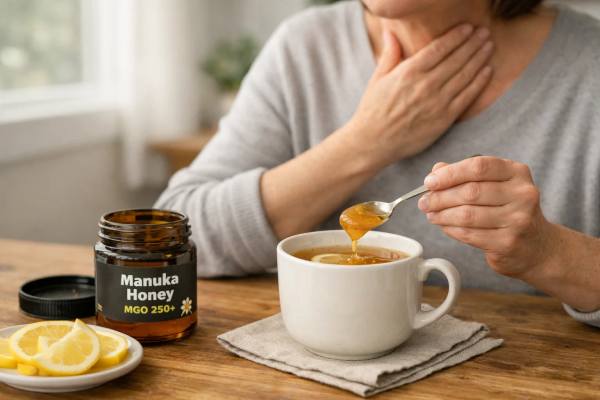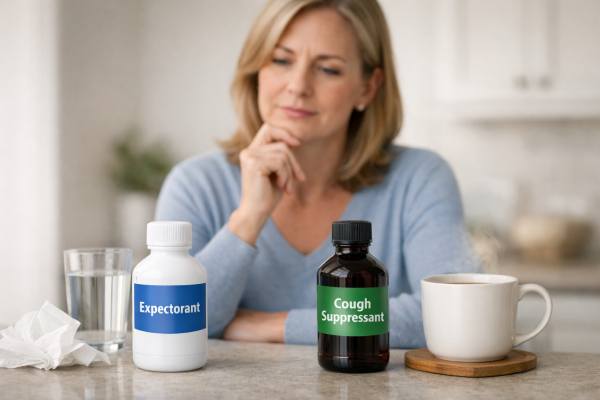Macrolide Antibiotics for Walking Pneumonia: When They’re Needed and What Resistance Means
“Walking pneumonia” is a popular name for a milder form of pneumonia where you may feel unwell, but you are often still up and...
Manuka Honey for Sore Throat: MGO, How to Use It, and When to Skip It
A sore throat can feel deceptively simple—until swallowing hurts, sleep breaks into fragments, and every sip stings. Honey has long been used as a...
Marshmallow Root for Sore Throat: “Coating” Herbs, Dosage, and Safety
A sore throat can feel deceptively simple—just a scratchy swallow—until it steals your sleep, makes meals unpleasant, and turns every conversation into effort. Marshmallow...
Mask Reuse and Rotation: When It’s Reasonable and When It’s Gross (and Risky)
Mask reuse sits in a gray zone: it can be perfectly sensible in some everyday situations, and genuinely risky in others. The difference usually...
Maternal RSV Vaccine During Pregnancy: Timing, Safety, and How It Compares to Infant Antibody Shots
RSV is often “just a cold” for adults, but for newborns it can be the illness that turns feeding into a struggle and breathing...
Mold Exposure Symptoms: Cough, Congestion, and What to Do About It
Mold is not just a surface problem—it is often a moisture problem that shows up through your lungs and sinuses first. When a home,...
Mono (Mononucleosis): Sore Throat, Fatigue, and How It Spreads
Mono can feel deceptively simple at first—just a sore throat, swollen glands, and the kind of tiredness you assume sleep will fix. Then the...
Mucinex vs Robitussin: Which Is Better for Your Type of Cough?
A cough can be protective, irritating, and surprisingly hard to “treat” with one perfect product. That’s partly because cough medicines work on different targets:...
Mullein Tea for Cough: Benefits, Safety, and How to Brew It
A cough can feel simple—until it keeps you up at night or leaves your throat raw and tender. Mullein tea, made from the leaves...
Mycoplasma Pneumoniae (Walking Pneumonia): Symptoms, Testing, and Best Treatment Options
Walking pneumonia is an informal name for a milder form of pneumonia—one that can still leave you wiped out, coughing for weeks, and contagious...
N95 Fit 101: Seal Checks, Common Leaks, and What Facial Hair Changes
An N95 respirator can be an excellent layer of protection for cold, flu, and other respiratory viruses—but only when it actually seals to your...
NAC for Mucus and Chest Congestion: What It Does and Who Should Avoid It
Chest congestion can make even a simple cold feel heavy—thick mucus, a stubborn cough, and that “can’t clear it” sensation that keeps you up...
Nasal Steroid Sprays (Flonase): When They Help Congestion and Postnasal Drip
A blocked nose and a constant “drip” down the back of the throat can feel like the same problem, even when they have different...
Nebulizers for Viral Wheeze: Saline vs Albuterol vs “Nothing Needed”
Viral wheeze can be frightening: a child who was playing normally at breakfast is suddenly breathing fast, coughing in bursts, and making a whistling...
Nicotine Withdrawal vs Cold Symptoms: How to Tell What’s Causing Your Cough, Anxiety, and Headache
Quitting nicotine is a major change for your nervous system and your airways, so it is common to feel “sick” right as you are...
Nighttime Cough: Common Triggers and What Helps You Sleep
A cough that behaves all day and then flares the moment you lie down can feel unfair—and exhausting. Nighttime cough is common because sleep...
















